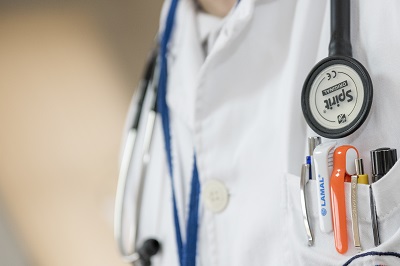Cancer patients are being offered more convenient treatment during the coronavirus pandemic, including chemotherapy buses and the accelerated rollout of an innovative and life-saving type of radiotherapy.
NHS England is fast-tracking the use of ‘stereotactic ablative radiotherapy’ (SABR), which requires fewer doses than standard radiotherapy and so cuts the number of hospital visits that potentially vulnerable cancer patients need to make. Rather than full rollout by 2022, it will now be available across the NHS within 10 months.
 It is a very precise method using a high dose of radiations with only around five outpatient visits, compared to conventional radiotherapy requiring 20 to 30 treatments. By next April, radiotherapy units across the country will be offering SABR treatment for non-small cell lung cancer and patients with ‘ogliometastatic’ cancer in the lungs, lymph nodes and bones (excluding the spine). Further rollout for other disease types is planned for 2021/22.
It is a very precise method using a high dose of radiations with only around five outpatient visits, compared to conventional radiotherapy requiring 20 to 30 treatments. By next April, radiotherapy units across the country will be offering SABR treatment for non-small cell lung cancer and patients with ‘ogliometastatic’ cancer in the lungs, lymph nodes and bones (excluding the spine). Further rollout for other disease types is planned for 2021/22.
Local hospitals have also increased treatment outside of hospital, including fast-tracking the use of ‘chemo buses’ so people can receive life-saving care without having to travel long distances. Although some cancer treatments which weaken the immune system have had to be paused until a safer time, frontline staff have pulled out all the stops to ensure people can get cancer care, with almost 30,000 people starting treatment during March.
Four cancer buses – based in North Middlesex University Hospital in London and Airedale NHS Trust in Yorkshire – have allowed around 60 sessions a day to go ahead. The buses have space for clinical teams to give chemo to four patients at a time, either directly outside of the hospital or in a convenient location for patients. Hospitals have also significantly increased the use of chemo at home, with local pharmacy teams and community nurses providing the service to reduce cancer patients’ risk of exposure to coronavirus.
The NHS has set out steps to treat more patients safely, including carrying out multiple same-day tests to minimise patient visits and expanding cancer hubs so that surgeries can be restored to pre-pandemic levels. ‘Covid protected’ cancer hubs have also been launched for routine treatment and online consultations so people don’t have to go to hospitals for regular checks.
Sir Simon Stevens, NHS chief executive, said: “While the NHS pulled out all the stops to care for nearly 100,000 older and vulnerable patients who have needed emergency hospital treatment for covid-19, staff have also worked hard to sustain other services including A&E, maternity care and treatment for urgent and emergency conditions.
“While it’s perhaps unsurprising that as covid-19 peaked in April there was a large drop in the number of people coming forward for check-ups, now is the time to do so where people have a concern.
“Hospitals are going to great lengths to deliver care and treatment for patients in a safe space, from online consultations to chemo buses and covid-free surgical hubs. The NHS is also accelerating access to new treatment options, including SABR – a potentially life-saving form of precision radiotherapy for people with cancer.”
